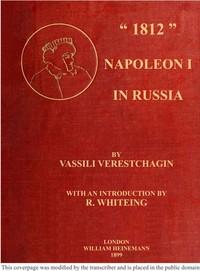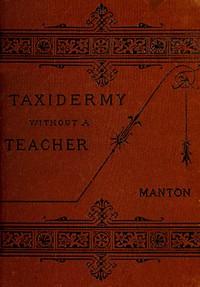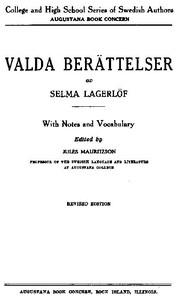Read this ebook for free! No credit card needed, absolutely nothing to pay.
Words: 32527 in 19 pages
This is an ebook sharing website. You can read the uploaded ebooks for free here. No credit cards needed, nothing to pay. If you want to own a digital copy of the ebook, or want to read offline with your favorite ebook-reader, then you can choose to buy and download the ebook.
PAGE INTRODUCTION 1
VOLUME II
THE LIFE OF LORD LEIGHTON
INTRODUCTION
SIR WILLIAM RICHMOND, R.A., and Mr. Walter Crane have kindly contributed the following notes:--
It was in 1860 that I first knew Leighton. We met over affairs connected with the Artist Rifle Corps at Burlington House, and afterwards at the studios of various artists, where discussions took place regarding the formation and means of conduct of the Corps. On several occasions I walked home with Leighton to his house in Orme Square.
But Leighton was always pulling himself up; and when he found himself too facile, too ornate, he resolutely set his mind to correct any tendency in that direction by fidelity to Nature, sometimes even to her ugly movements. Excess was not in his nature, which was curiously logical; his mind was swift, far-seeing; in debate he was admirable, always seeing the weak point of an argument at once, and "partie pris" was his abomination. A man so gifted in the essence and laws of form, so learned in the construction of the human frame, so deeply sensitive to line and movement as well as to structure, surely would have given to the world great works of sculpture. Indeed he did, but not enough! One regrets that--still one must accept the fact that form is but little cared for in this country, and Leighton sinned by reason of his love of form; by many he was called not a painter because he did not smear, did not trust to accidents, did not leave works half done--because he was sincere to his conviction that a work of art must be, to last, complete "ad unguem." The present craze for incompleteness, for sketches instead of pictures, for unripe instead of ripe fruit, must die as all false notions die; the best, the rightest will live; and when the present ephemeral fashion has worked itself out, the nobility of Leighton's works, his best, are certain to take their place in the estimation of those that know as surely as that they are good.
How many out of the multitude really, if we could test them, care one jot for the Elgin Marbles, for the Demeter of Knidos, for the vault of the Sistine Chapel?--very few. Really great things never can be accepted by the commonplace. How should they be? for to understand the highest in music, in architecture, sculpture, or painting, the observer or listener must have a spark in his constitution which is a portion of the flame that burned white heat in the soul of the conceiver. How can such an attitude of intimate sympathy belong to the many? It never has, and probably never will. Great men are rare, and those who are mentally or organically made to comprehend them are rare also. The great can afford to wait because they are immortal. In all one's dealings with Leighton what did one find? a noble nature, restrained, charitable, in earnest; and if in many discussions as to the desirability of certain events, certain compromises, certain acts of conformity, one did not agree with Leighton, one knew "au fond" that the attitude was quite logical, not hastily arrived at, and the position taken up was to be strenuously held: and it was that power of consistency which made Leighton so trustworthy. He was fearless when his principles were touched, he was loyal to his associates in the Academy even if he did not see eye to eye with them, and he was loyal to his art and to his friends. If Leighton had chosen politics for his career he would probably have been Prime Minister, just as Burne-Jones might have been Archbishop of Canterbury had he continued his early and very remarkable theological studies. All really great men have endless possibilities. It is more or less chance which decides the direction of ability, which, once discovered, forcibly, dominantly present, must find opportunities for its highest development and achievement in the tenure of the goal. It was ability and natural gifts that made Leighton great, industry that nourished his greatness, and stability to principle which made it lasting in his lifetime, and must for all time stamp his work. The thing that really engages one's interest about a great man is not so much his "technique" as his general disposition and character, which forms for itself a suitable "technique" by which his achievements have been manifested. Should any one by-and-by describe the "technique" of Joachim, the supreme violinist, he would probably interest a few, but in reality he would say nothing really valuable, excepting inasmuch as he touched upon first principles. The "modus operandi" of an artist's life is moulded by his personal aims, the means are those by which he found his own way of stating them; and one doubts very much if, after all, the points which differentiate one man's work from another's are not those which have obliterated the conscious efforts, preserving just the touches which genius gives beyond and above all laws that may be learnt. Verse no doubt is much dependent for its beauty on the system of the arrangement of syllables, and the music they make when harmoniously handled upon the final perfection which they reach, and so become rule-making instead of being the result of rule-following. Hence lies that unaccountable beauty which is the inexplicable result of the ego--that taste, that selection, that special word which creates an impression immediately, and which seems inimitable even, and obviously the only one which could have been used; that is style--the very essence of the ego which cannot be copied, or indeed again brought into relation with the idea. And isn't that the reason why the copy of a picture can never be really like an original? even if the "technique" is identical, it lacks that last touch, that last word which transcends tradition, almost transcends thought, for it is just the thought which has been summed up in a moment of inspiration, uncalculated, spontaneous. Leighton was far too wise a man to believe in the constant recurrence of inspirations: he knew that the moment when the whole spirit is ready to act is involuntary; he knew that to reach the supremacy of that moment, labour was necessary; that in labour is the foundation of the building for that moment of inspiration. One may question if the first vision in Leighton was very strong--strong as Blake's, strong as many artists whose powers of attainment were much less than Leighton's, but whose vision was clearer at the outset. Rougher minds than Leighton's have produced more epic effects, and a ruder, less accomplished "technique" has borne with it more original, more trenchant ideas. Leighton was not a mystic; he dealt with thoughts which he embodied in forms that he saw, but which he also made his own in their application; that was his genius of originality. The rugged verse of AEschylus had no place in his temperament, much as he admired it; the polished diction of Virgil bore more similitude to Leighton's inspiration. Sometimes one missed in his work just the touch of the rugged which would have given more grace by comparison, by contrast. His grace of diction, his oratory, his writing, was sometimes over-refined, and missed its mark by over-elaboration. The very speciality of Leighton was completeness. One has seen pictures in his study only half finished, which had a charm of freshness that vanished as each portion became worked into equal value. But that fastidiousness was his characteristic, it was part of him; and therefore we must not deplore it. His originality was exemplified by his power of taking pains, his power of will to do his very best according to his guiding spirit of thoroughness. Temperaments are so different. Whistler could not be Leighton. Because we admire the one, it is not necessary to decry the other; that is weak criticism, or rather none at all. The spirit which inspires the impressionist is not the spirit of design, but a limited observation in a very restricted area. We can have the Academic as well as the Impressionist: both are useful as foils to each other, and it is just as narrow of the Impressionists to want all men to see nature and art as they see them, as it has been for the Academics to see "nothing" in the newer if more limited system. I believe that Leighton's real love was early Italian art; all that came to him after was the result of growth. His enthusiasm for Mino da Fiesole, for the earlier Raphaels, for Duccio of Siena, for Lorenzetti, was evident and absorbing; other enthusiasms were more branches from the stem than its roots. He loved line; he found it there: he loved restraint of action, pure sensuous beauty; he found it in early Italian Art. The reserve of emotions touched him in Greek Art--its suavity, its almost geometrical precision, the tunefulness and melody of its rhythmical concords. His love of music was on the same lines: Wagner never appealed to him as Mozart did; it was too strenuous, too busy in changes of key, too incomplete in the finish and development of phrases. It was not that he liked dulness--not a bit; he was emotional, often gay, often depressed--excitable even; but to him Art was an intellectual more than a purely emotional system, and he liked it to be finished, consistent, perfect--and those qualities he strove for, without a doubt he obtained in a high measure. It will be long before we see again the like of Frederic Leighton, a man complete in himself.
I first met Leighton about 1869 or '70, I think. I went to one of his receptions at the Studio in Holland Park Road, at the time he was showing his pictures for the Academy. I think his principal work of that year was "Alcestis," or "Heracles Wrestling with Death." About the same time Browning's poem of "Balaustion's Adventure" appeared, in which he alludes to Leighton and this very picture in the lines beginning:
"I know a great Kaunian painter"
.
I availed myself of a friend's introduction, and presented myself. One recalls the courteous and princely way in which he received his guests on these occasions, and the crushes he had at his studio--Holland Park Road blocked with carriages, and all the great ones of the London world flocking to see the artist's work.
Free books android app tbrJar TBR JAR Read Free books online gutenberg
More posts by @FreeBooks

: 1812 Napoleon I in Russia by Vereshchagin Vasil Vasil Evich - Napoleonic Wars 1800-1815 Campaigns Russia; Russia History 1801-1917









